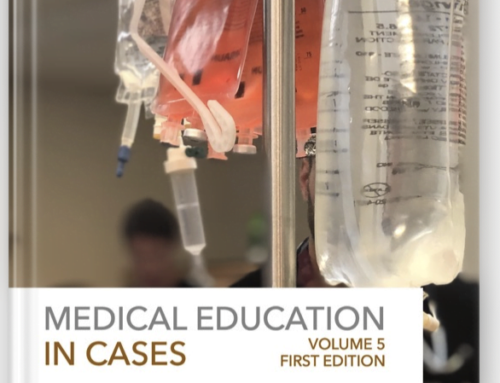 While we congratulated and welcomed the interns with the list of Greatest Hits for Interns, it’s high time we actually congratulate and welcome you… the new Senior Residents! You’ve toiled through call shifts on off-service rotations, you’ve worked hard reviewing cases with junior residents and getting grilled you about the latest esoteric facts by the seniors! And now, you’re going to be in charge of other other residents!?! You are probably equal parts excited and scared… but more to the point you may be wondering – How does one actually be a great senior resident? Well we have some resources for you!
While we congratulated and welcomed the interns with the list of Greatest Hits for Interns, it’s high time we actually congratulate and welcome you… the new Senior Residents! You’ve toiled through call shifts on off-service rotations, you’ve worked hard reviewing cases with junior residents and getting grilled you about the latest esoteric facts by the seniors! And now, you’re going to be in charge of other other residents!?! You are probably equal parts excited and scared… but more to the point you may be wondering – How does one actually be a great senior resident? Well we have some resources for you!
Four years ago, we started the ALiEM Medical Education in Cases series in hopes of engaging both Senior Residents and Faculty Members in discussions about the art and science of medical education. In a few days, we will be officially releasing our MEdIC Series Volume 3 e-book as well! Stay tuned! (Hint: the link may already be on our MEdiC home page!)
Below is a curated collection of cases we think are especially important for senior residents to read and consider.
Cases about Leading Your Team
1. The Case of the Backroom Blunder (Case 2.1)
This case is a MEdIC classic. A medical student overhears a resident and staff using offensive slang and black humour when chatting about a particularly traumatic case. The nuanced and robust discussion from the community and well-recognized experts Brian Goldman and Liz Crowe highlight the importance of words, explore why we use black humour and, the consider the effect language might have on more junior learners and ourselves. This case may help the newly minted senior be mindful of words and how/where they use them!
2. The Case of the Unexpected Outcome (Case 1.9)
Although the main character in this piece is a faculty member, the dilemma faced by her will likely resonate with senior residents who are gaining autonomy and feeling the weight of decreased supervision.
3. The Case of the Terrible Teammate (Case 1.6)
As residents become more senior they are often expected to take on administrative responsibilities, which frequently requires working in teams. The question is not “if” conflict will arise, rather “when” it will arise. In this realistic case, a group of chief residents are frustrated with a colleague who does not seem to be pulling his weight. We recommend this case because the curated commentary gives a 10 Step Guide to Approaching Conflict. This practical approach is a good reminder for best practices in conflict management. You will need it this year.
4. The Case of Breaking Bad News Badly (Case 2.5)
One of my favourite ICU fellows once told me that difficult conversations are the most important procedures we perform. It is a procedure that senior residents are often responsible for leading or sometimes supervising. This case is a must read reminder of how one might engage effectively in challenging conversations with patients and families near or at the end-of-life.
5. The Case of the Resident-At-Risk (Case 4.4)
The Case of the Resident-at-Risk outlined a scenario of resident who is unsure of how to proceed when another discloses jokes about suicide while on shift. There is an increasing need for both residents and faculty to become more vigilant in detecting and offering assistance to those in need. This case helps
Cases about Teaching Others
1. The Case of the Justified Junior (Case 1.11)
This challenging case explores challenges that arise when you and a junior trainee hold differing opinions on a specific case. When supervising a medical student how will you respond to differences of opinion? How do you know you are correct? The thoughtful expert commentaries share cognitive and practical strategies for conflict resolution, suggests re-framing “right” and “wrong”, and explores how one can turn this into a great teaching moment!
2. The Case of the Fibbing First Year (Case 3.7)
While this case depicts an attending working with a resident who is misrepresenting clinical data, the supervisor could just as easily be a senior resident. The most useful part of the commentary is a s simple framework for approaching concerning behaviours with genuine curiosity using the “Advocacy-Inquiry Approach”.
3. The Case of the Lazy Learners (Case 4.6)
This case highlights the role modeling opportunities and responsibilities for senior residents. It is amazing when you start to be a senior and suddenly realize the weight of responsibility that is now on you as a teacher and a role model.
4. The Case of the Failure to Fail (Case 4.8)
With the advent of increasing assessment in residency, it is important for senior residents to be aware of their responsibility to provide good feedback so that attendings can make the right call when grading other learners.
5. The Case of the Absentee Audience (Case 1.12)
This is a MUST READ case for every senior resident as they begin lecturing more often. Again, although the character in the case is a junior attending, this scenario could just as easily happen with any junior lecturer (i.e. senior or chief resident that is only just starting their career as a lecturer).
Stay tuned soon for a curated list of posts for new attendings!






